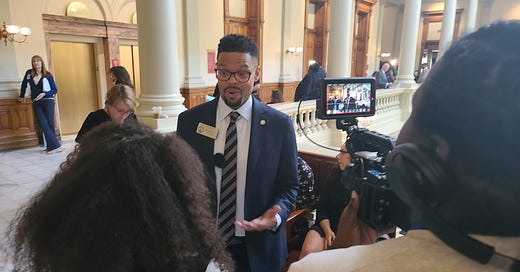Performative Legislation
I wish I could tell you that Georgia's legislature understood crime and punishment. But it is almost certainly making the problem worse.
I wander the halls of the Georgia state legislature at my peril. The fear and loathing is real.
I promised one gaslighting quasi-Christian Republican state senator on Twitter that if I saw him in the hall I would call him a piece of dirt to his face, after the chamber passed the anti-trans Senate Bill 140 last week turning pediatricians into criminals. …
Keep reading with a 7-day free trial
Subscribe to The Atlanta Objective with George Chidi to keep reading this post and get 7 days of free access to the full post archives.




